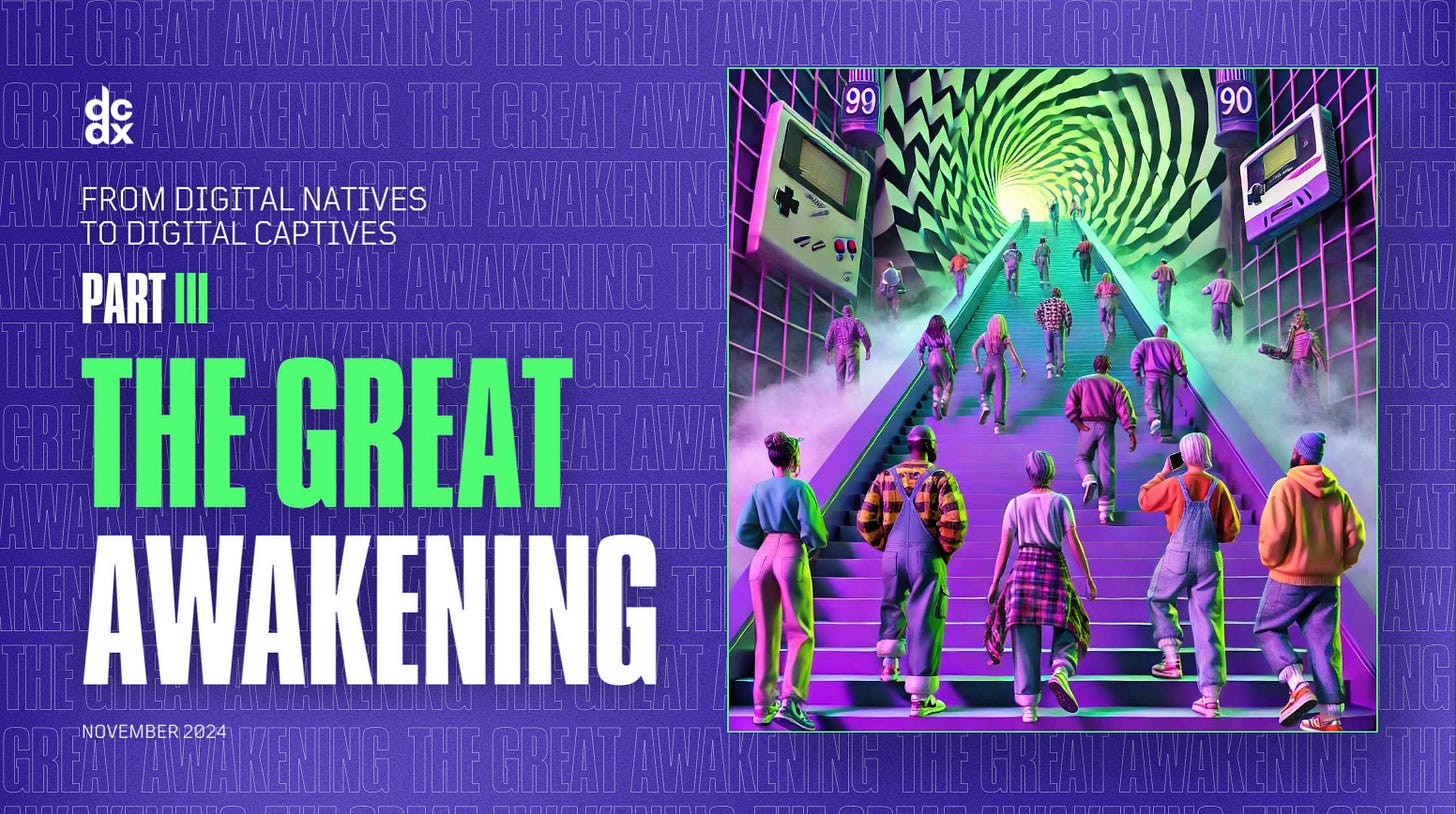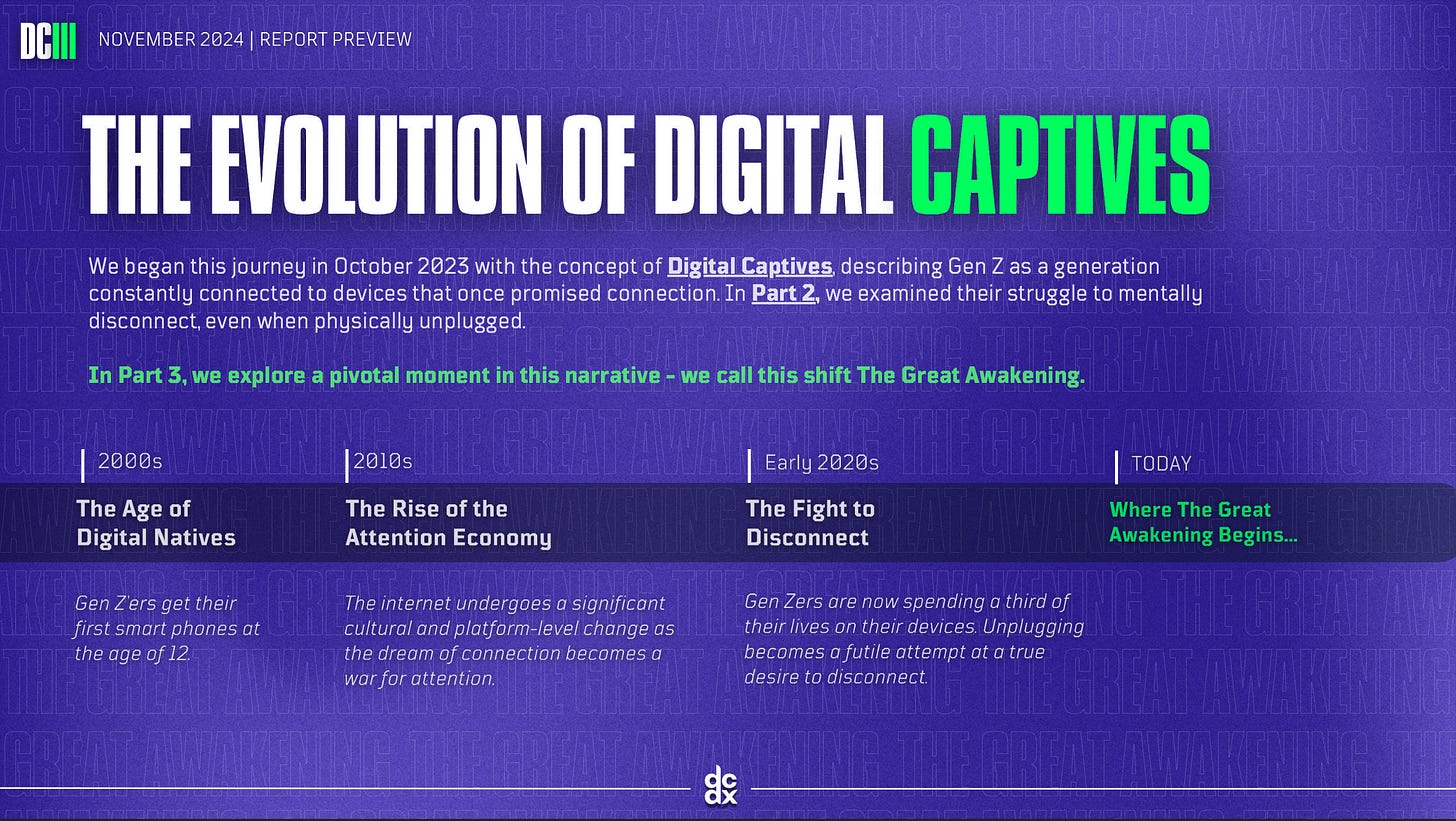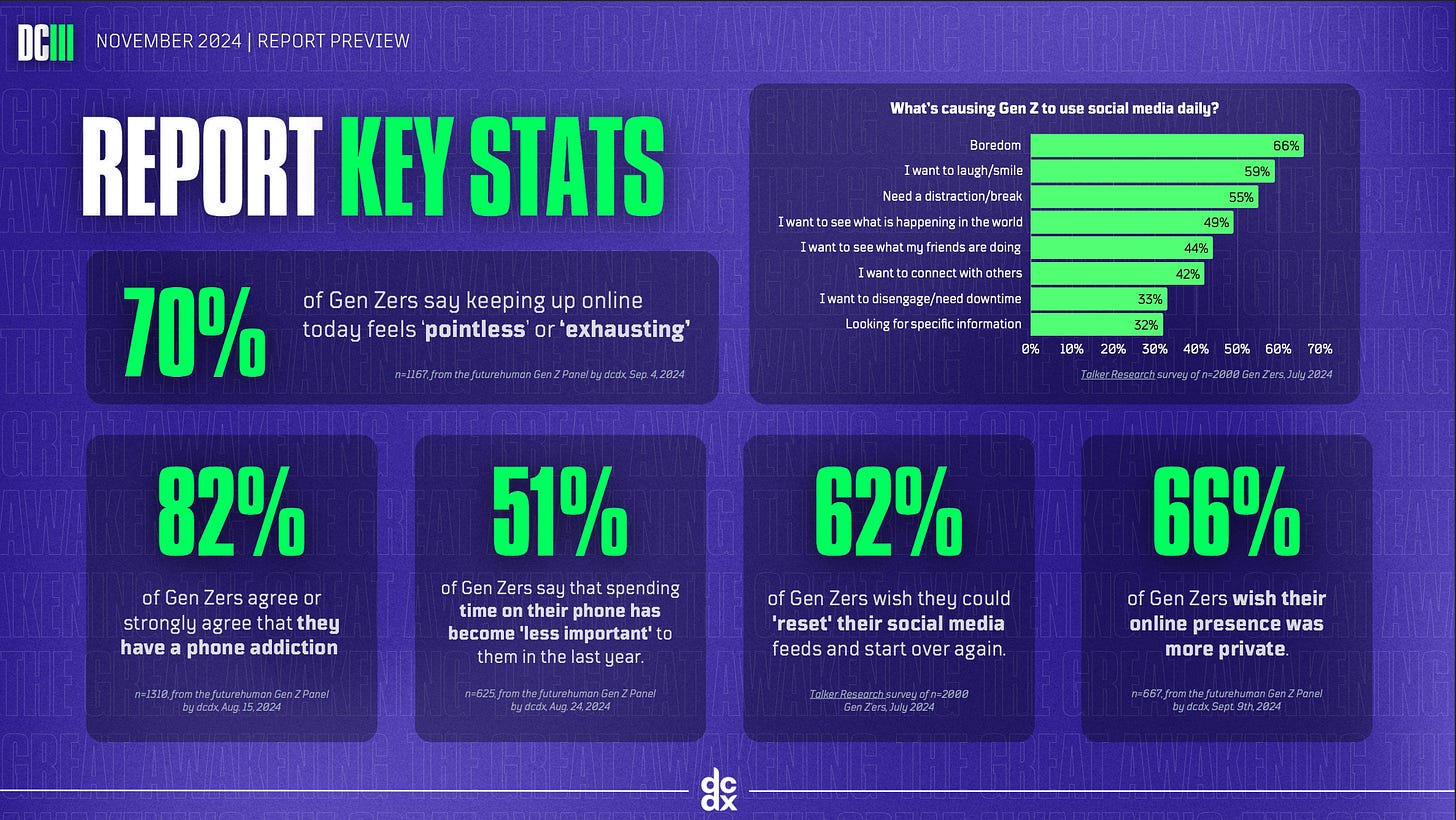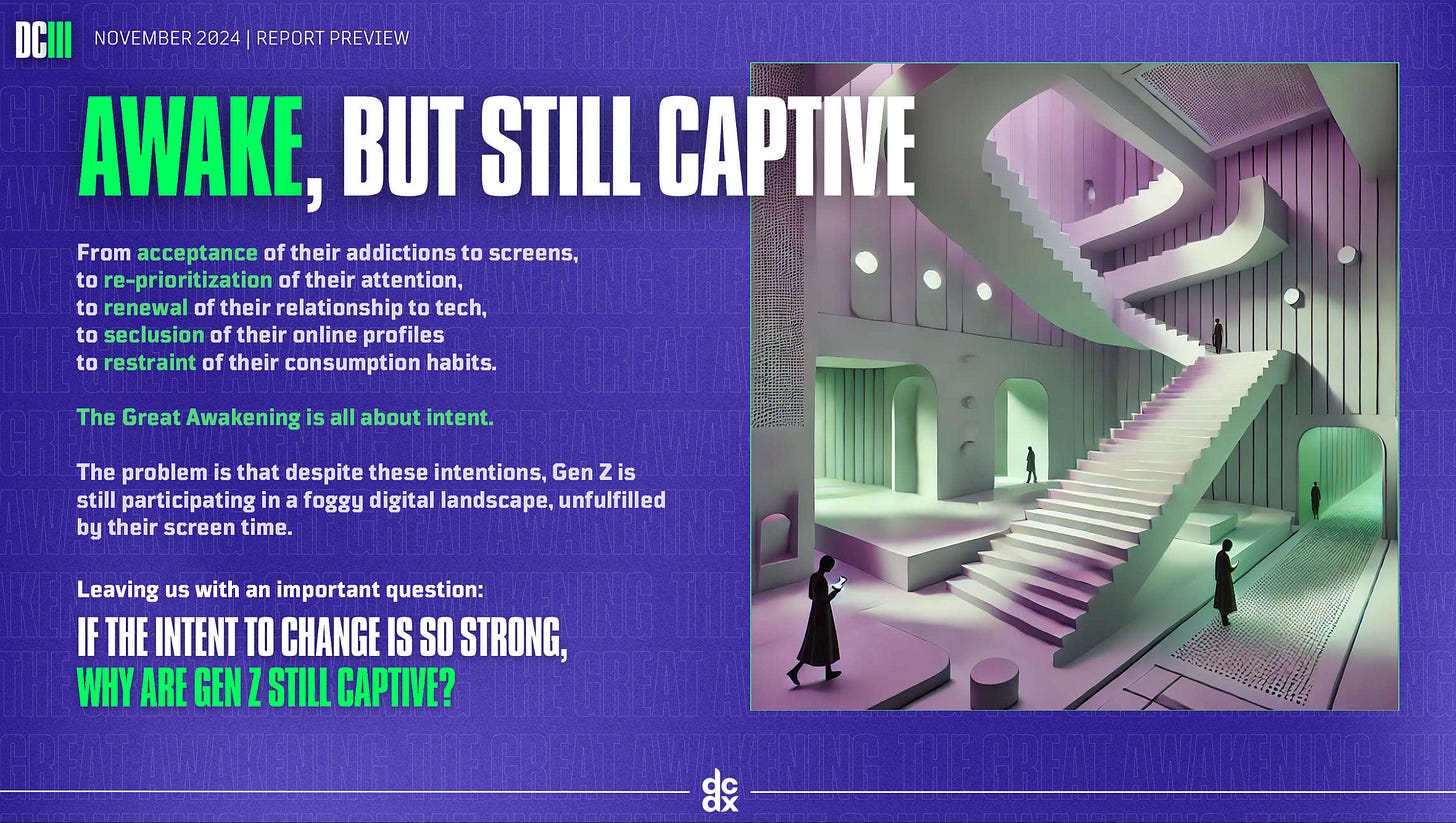We live in a new digital reality. Viral trends are fading faster, influencers’ influence is waning, and being online today feels more draining than fulfilling.
Back in October of 2023, we introduced the concept of Digital Captives - first, exploring How the Internet Changed Gen Z, followed by The Pursuit of Unplugging driven by young people seeking a healthier mental & physical relationship to their devices.
One year later, we return with Part 3 of this story. The Great Awakening, is a pivotal moment marked by exhaustion and shifting mindsets as Gen Z demands more meaningful digital experiences and greater control over their online lives.
On Tuesday, we published this new report on some fascinating new behaviors emerging around Gen Z’ers digital habits. That data is shared below (and much more accessible in the full report).
Our purpose here is to take you behind the scenes to understand why we did this, and what we learned and observed through this research process.
New Data
In section 1 of this report, we explore The Fog - our cluttered digital landscape wrought with new terms like “brain rot” and “content slop” ascribed to its meaningless mess.
We found from polling Gen Z’ers a few of these key signals of this mindset as well:
Tired of keeping up: 70% of Gen Z feels that keeping up with what’s relevant online today feels ‘exhausting’ or ‘pointless’
Boredom begets social media use: 66% of Gen Z say that ‘boredom’ is the main reason they use social media today.
In section 2, we uncovered some of the emerging mindsets fueling the Great Awakening.
Rethinking the value of screen time: 51% of Gen Zers say that spending time on their phone has become 'less important' to them in the last year.
Longing to start over: 62% of Gen Zers wish they could 'reset' their social media feeds and start over again
Seeking seclusion online: 66% of Gen Zers wish their online presence was more private.
These findings led to a powerful insight: Gen Z’s priorities and intentions are evolving rapidly as they push back against a digital landscape they find increasingly unsatisfying.
And yet, despite all of these intentions being so strong, why are so many young people still so captive to their devices?
While there is more to this story detailed in the research, the tension outlined above comes back to the structure of the attention economy.
Gen Z is trapped in a system designed to capture and hold their attention, making it harder to act on their intent to gain control over their digital lives:
Right now, the only solutions proposed are either banning devices altogether or asking them to “unplug”.
In part three, we propose a new model for brands engaging in this intention-unmet landscape, designed to challenge how brands measure success and adapt to Gen Z’s expectations for the future.
We also share five case studies from Hinge, Hoka, Gap, Venmo, and Glossier around this model, showing how brands participating in this new environment drive positive returns on investment.
Behind-the-scenes thoughts & reactions
2024 was a year that brought much-needed awareness to the role of technology in the lives of young adults - never before has there been more conversation around how to tackle the collective challenge that smartphones and social media have created around youth mental health.
While this discussion is essential and timely, it has also become polarizing, turning a shared cause into an “us vs. them” conflict that complicates progress.
To create a more human-centric future, we must rethink the attention economy, aligning marketing incentives with user intentions rather than just capturing attention. And while technological innovation may have led us to the attention economy, it may also be our direct path out.
The introduction of artificial intelligence to mainstream culture has already started to upend the attention economy.
Tools like ChatGPT and Perplexity are already challenging traditional attention models, shifting from passive tracking to active personalization, impacting platforms like Google that rely on attention-driven advertising.
The attention economy thrived on brands and platforms telling Gen Z what they want. The next economy (thoughts on what this is in the full report) promises to give Gen Z more power to choose what they truly desire.
Now, we must ask ourselves a critical question. In a world shaped by this next economy, how will Gen Z’s habits, behaviors, and relationship with technology change?
We can not predict how more control and sovereignty over digital lives will affect young people. But what we do know is it will certainly be an important step away from captivity, towards a future built by, with, and for the humans that will inhabit it.








